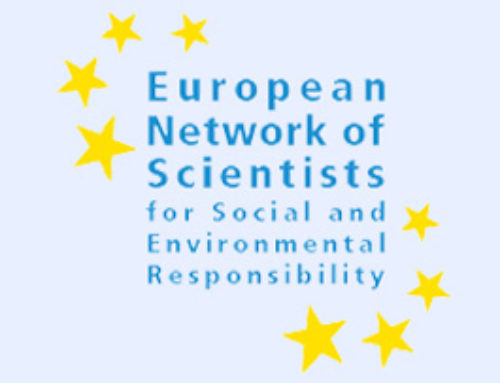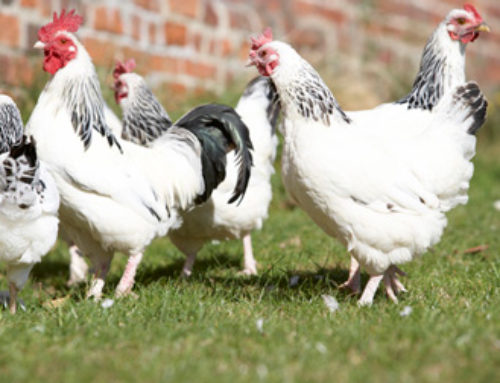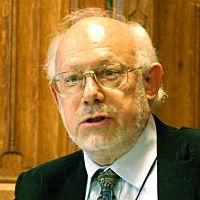Just months after a study was published showing that two Monsanto products, a genetically modified (GM) maize and Roundup herbicide, damaged the health of rats, the journal that published the study appointed a former Monsanto scientist to decide which papers on GM foods and crops should be published, a new article reveals.[1]
Monsanto and GM foods suffered a storm of bad publicity after a study published in the journal Food and Chemical Toxicology (FCT) in September 2012 reported that a GM corn and Roundup caused organ damage and increased rates of tumors and premature death in rats.[2]
But in early 2013 Richard E. Goodman, a former Monsanto researcher with close ties to the biotech industry, joined the senior editorial staff of FCT. Goodman was given the specially created position of associate editor for biotechnology.
Claire Robinson, research director at the science policy platform Earth Open Source and a co-author of the new article, said, “Goodman’s fast-tracked appointment straight onto FCT’s upper editorial board raises the question of whether Monsanto is now effectively deciding which papers on GM foods and crops should be published and which should not.”
The article explains that Goodman’s appointment is just the latest in a long series of episodes in which people with interests in the agricultural biotech industry have attempted to control or prevent the publication of inconvenient research.
In other cases, the pages of scientific journals were given over to extraordinary attacks on scientists whose research revealed problems with GM crops and foods. Often, the critics did not disclose their conflicts of interest with the GM industry, and the journals failed to make them do so.
Dr Jonathan Latham, executive director of the nonprofit Bioscience Resource Project and co-author of the new article, said, “Unfortunately, the public and the scientific community can no longer trust that peer-reviewed journals reflect the true state of scientific knowledge. Some journals have become a vehicle for a narrow interest group – biotechnology corporations – to control scientific discourse.”
Robinson and Latham note that the crisis in scientific publishing reflects the wider problem that scientific research is increasingly dependent on industry funding. Latham said, “Conflicts of interest have become the defining problem of modern science and limiting them amongst public sector scientists has become a fundamental necessity.”
The authors challenge scientific journals to level the playing field and apply the same critical standards to studies that conclude that GM foods and crops pose risks as to studies that conclude safety. They should also publish all conflicts of interest among their editorial staff.
If journals fail to reform, scientists who carry out public interest research may need to create an alternative publication model: public peer review, or ‘open source science’.
ENDS
Notes
- Claire Robinson and Jonathan Latham, The Goodman affair: Monsanto targets the heart of Science. Independent Science News and Earth Open Source. 20 May 2013. http://independentsciencenews.org/science-media/the-goodman-affair-monsanto-targets-the-heart-of-science/ and http://bit.ly/189Ff88
- GE Séralini et al. (2012). Long term toxicity of a Roundup herbicide and a Roundup-tolerant genetically modified maize. Food and Chemical Toxicology 50(11): 4221-4231.
Contact: Claire Robinson claire.robinson@earthopensource.org
Research director, Earth Open Source
Tel: +44 (0)752 753 6923
Jonathan Latham, PhD jrlatham@bioscienceresource.org
Executive director, Bioscience Resource Project
Tel: +1 607 319 0279 (USA)
Press Release
Independent Science News and Earth Open Source, 20 May 2013







I didn’t read the related articles, but does this guy still hold stock in biotech companies?
remove GMO’s I boycott until action is taken!
I’ve been boycotting and will continue till all GMOs are stopped. I urge all to do the same
Is this another case of putting the Wolf In Charge Of The Sheep. It seems Monsanto is infected with World Domination Fever….
Richard E Goodman
Research Area:
1) Refining methods and evaluation criteria for regulatory assessments of the potential allergenicity of genetically modified crops. 2) Identification of food allergens.
http://foodsci.unl.edu/web/foodsci/goodman
Peer Reviewer for the FAARP allergen online database at the University of Nebraska
Sponsors of the online databases include:
◾BASF Plant Science, LP
◾Bayer CropScience, AG
◾Dow AgroSciences, LLC
◾Monsanto Company
◾Pioneer Hi-Bred International, Inc., A DuPont Business
◾Syngenta Crop Protection, LLC
http://www.allergenonline.org/
From Nature, 2008, declaration of conflicts of interest:
“As indicated in the primary manuscript, the described work was funded in part by the Univ. of Nebraska, ARS (USDA) as well as through the Food Allergy Research and Resource program at the Univ. of Nebraska. R.E. Goodman received grant support from Bayer CropScience for work on endogenous allergenicity comparisons. S. Vieths acknowledged Monsanto for funding to support research on soybean allergen varietal comparisons. The AllergenOnline database at the Univ. of Nebraska is funded under contracts with six international agricultural biotechnology companies (BASF, Bayer, Dow, DuPont/Pioneer, Monsanto and Syngenta).”
http://www.nature.com/nbt/journal/v26/n10/box/nbt1008-1071_audecl.html
One more
From a 2011 open access study:
“Disclosure Dr. Goodman has received grant support from and had travel/accommodations expenses covered or reimbursed by the US Environmental Protection Agency, the US Department of Agriculture Foreign Agricultural Service, BASF Plant Science, Bayer CropScience, Dow AgroSciences, Monsanto Co., Pioneer Hi-Bred International, and Syngenta Plant Protection and has received consulting fees/honoraria from Bayer CropScience, the Institute of Food Technologists, CropLife International, the Institute of Life Sciences, Cargill, and PepsiCo.Dr. Tetteh has received grant support from the US Environmental Protection Agency.”
http://www.ncbi.nlm.nih.gov/pmc/articles/PMC3130127/
The same is true of medical journals with big pharma influence. Junk science gets peddled along with product.
Peer reviews were already not as unbiased as we would hope them to be… but now we can be sure that all peer reviews in regard to genetically engineered organism and related subjects will all be totally biased…!!!
It’s no different than any media outlet.. that’s why most serious journalists don’t work for any mainstream outlets.. everything is bought and paid for by the corporations because we live in a corporate polyarchy! I am living proof that GMO’s or roundup made me sick for 17 years and as soon as I went organic I was miraculously healed of 5 autoimmune diseases!
Did you check this out before you printed it? Dr, Richard Goodman is still listed on the faculty of the University of Nebraska website. There is a Rick Goodman that works for the publishing company of the journal – in the media department. Please verify information before you print it.
Deb: The Richard E Goodman that’s on the editorial board of FCT is indeed the same one that works at the Univ of Nebraska. The FCT says so itself:
http://www.journals.elsevier.com/food-and-chemical-toxicology/editorial-board/
The fact that someone takes up a position on an editorial board of a journal does not mean that he has to give up his job at his university. Or am I misunderstanding you? Please clarify exactly what you mean and perhaps we can give you a satisfactory answer.